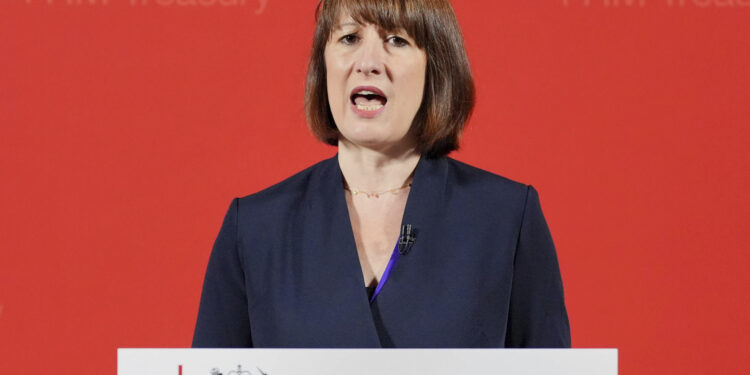Britain’s economy grew by 0.4% in May from the previous month, data from the Office for National Statistics showed on Thursday, after expectations of a 0.2% increase.
The growth came after Britain’s economy stagnated in April, which was good news for the new Labour-led government, which has made reviving growth one of its priorities.
“Getting economic growth is our national mission, and we don’t have a minute to waste,” said Britain’s new finance minister, Rachel Reeves, commenting on the growth, stressing that the country must start rebuilding.
Reeves, a member of the government of Keir Starmer, the leader of the centre-left Labour Party, which won last week’s general election, announced the creation of a “national sovereign fund” into which she will pump 7.3 billion pounds ($9.4 billion) over five years.
Expected deficit
In a related context, Bloomberg reported that Reeves faces the possibility of a budget deficit of up to 30 billion pounds ($39 billion), which would hinder the new British government’s ability to reform the country’s faltering public services.
Bloomberg quoted private sector economists as saying that the forecasts of the British Office for Budget Responsibility (OBR) (which is considered the mastermind of the budget) for the next two years are overly optimistic, and any push from the Labor Party’s policies to revive growth could be eliminated by a credit rating downgrade.
While the Budget Watchdog expects growth of 1.9% for 2025, the median of 56 economists surveyed by Bloomberg expects just 1.3%.
Any boost to growth from government policies such as housebuilding or small changes to the trading relationship with the European Union could explain the Office for Budget Responsibility’s upbeat forecast, Robert Wood, chief UK economist at Pantheon Macroeconomics, told Bloomberg.
The warnings expose the fragility of public finances at a time when the new Labor government is trying to stimulate growth to obtain additional funds to fund crumbling front-line services, according to Bloomberg.
Borrow or tax
Labour hopes to build on what was a major recovery from Britain’s recession last year, and new figures on Thursday showed the economy grew at twice the pace expected in May, putting Britain on course for another strong expansion in the second quarter.
While Prime Minister Keir Starmer has ruled out a return to austerity, his government will either need to borrow more, raise taxes or boost growth to mitigate the spending cuts set by the previous government if it wants to stick to its own fiscal rules.
Complicating matters is the very small fiscal space that former Conservative Chancellor Jeremy Hunt left himself when he budgeted in March, which amounted to just £9 billion ($11.6 billion), even with the Office for Budget Responsibility’s forecasts already leading to an acceleration in growth.
“Labour will have to do well on growth measures just to prevent a really minimal contraction,” Wood said.



